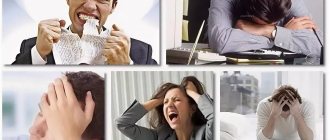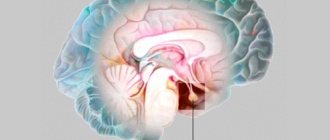Causal classification of stressors 4.3.1. Degree of stressor controllability
As the experience of many psychotherapists who are approached by people suffering from stress shows, the latter’s mistake is that they sometimes wrongfully transfer responsibility for their problems to external environmental factors. The essence of this position was well expressed by the British psychologist Xandria Williams, who has been conducting anti-stress seminars for many years.
“Currently, my business is not going very well: problems have accumulated. I have a lot of worries, very little money, too many responsibilities and sorely lacking time. Those I love don’t love me, my friends have forgotten me, my boss is unbearable, my children are a worry, the news is always bad, times are hard. If the economic downturn ended, the kids behaved themselves, the boss quit, my marriage went back to how it was in the beginning, and people made fewer demands on me, then I would be happy.”[1]
Commenting on such views, K. Williams notes:
The inability to change life factors leads to the erroneous conclusion that you are unable to improve the situation.
An alternative to this approach is to believe that you are, to some extent, responsible for how you feel. Of course, you are not able to influence the economic downturn in the country, but you are able to manage your
4.3. Causal classification of stressors 123
In order to accurately choose a way to deal with a particular stressor, it is important to identify its essence in time, and this requires the classification of stressors into several groups, each of which requires its own approach (Fig. 32).
The first way to categorize stressors is to assess our control over the situation.
We can influence some events directly and to a significant extent.
For example, if in the fall a person is worried about the cold in the apartment, and the heating season has not yet begun, then he has many ways to get away from this stress, from the simplest (dress warmly or turn on the electric heater) to more complex and expensive (move to the south before turning on the central heating system). heating).
Other events are more difficult to influence directly, but can be influenced indirectly.
Such stressors, for example, include illness or relationships with friends. On the one hand, health is the result of caring for it, since it depends on the nature of nutrition, daily routine, physical education, etc., but, on the other hand, it also depends on the environment and pathogens that are beyond human control. The same is true with interpersonal relationships. On the one hand, with your friendly and constructive actions you can create good relationships with people around you, but sometimes there are such conflicting personalities that cause stress, despite all efforts to avoid it.
Anger, irritability, rage and other negative emotions only prevent you from enduring the blows of fate with dignity, so you should learn to manage your feelings or translate them into a constructive direction. Gender, passport age (not specified)
deal with biological age, which can be influenced!), weather conditions, government, price levels and pensions - many things in Russia fall into the third category of stressors. This also includes the habits and characters of other people.
Since a clear dividing line cannot be drawn between the categories of stressors described above, they can be placed on a certain scale, ranging from those that we can certainly influence to those that are completely beyond our control (Fig. 32).
Rice. 32. Degree of control over stressors
It should be noted that a person, in principle, can, within certain limits, change the ratio of the part of the world under his control and the part independent of him. Let's take appearance, for example. On the one hand, it is given to a person from birth, and he can only come to terms with it as an unchangeable given. But, on the other hand, the successes of modern plastic surgery, endocrinology and other branches of medicine allow people to change the shape of their nose, transplant hair, change the size and shape of their breasts, etc. Numerous cases of gender reassignment in recent years show how far a person has come in his the desire to modify one's nature at will.
Localization of the stressor
Another way to categorize stressors is based on the location of the problem:
it can be truly objective in nature or be the fruit of the individual’s consciousness. So, green devils, who-
Those who torment an alcoholic during delirium tremens represent a classic example of a subjective problem, and the orderly of a drug treatment clinic who took away a hidden bottle of vodka from this alcoholic is already an objective factor.
In our usual reality, all stress factors can be arranged in accordance with a ranked scale, at one end of which there will be invented problems, and at the other end there will be real problems, independent of human consciousness. Most often, real problems exist in a short period of the present time, and “virtual” ones exist in the past or future (Fig. 33).
Rice. 33. Localization of the stressor
Based on these two ways of separating stressors, it is possible to create a two-dimensional grid of coordinates, with the help of which it is easier to understand what kind of stressor a person is faced with and what can be done to reduce the level of stress [4] (Fig. 34).
For example. Weather:
“reality” by 8 points (a small subjective component remains: what is cold for an Italian is hot for a Yakut), “controllability” is about 2 points (we can only partially compensate for the vagaries of the weather with the help of an umbrella or appropriate clothing). Consequently, it falls into the “Area of Wise Acceptance.”
Poor living conditions:
“reality” by 7 points (although, in general, it is clear what we are talking about here, but still, for one “a decent apartment”, for another it is a “wretched shelter”), and “controllability” - by 8 points ( you can earn or borrow money in order to improve your living conditions). Accordingly, this stress falls into the “Area of Constructive Action”.
Fear of the Dark:
“reality” - 1.5 points (in the case of phobias, fear is caused by the darkness itself, and not by something specific that may be hidden in it); “controllability” is most often low (3 points), since people, as a rule, do not know how to manage their own emotions, although this is quite possible to do with the help of a qualified psychologist. Thus, this is the “area of subjective stress.”
1 26 Chapter 4. Causes of psychological stress
4.3. Causal classification of stressors 1 27
Businessman stress,
associated with concerns about the fate of the concluded contract. “Reality” – 4 points (stress is caused by anxiety about possible but unlikely events), “controllability” – 7 points (preventative measures can be taken to insure against failure). This situation can be attributed to the “area of self-regulation.”
Rice. 34. Localization of stress on a two-dimensional coordinate grid of the “Reality - Degree of Control” scale
In its most general form, the task is to try to move stressors to the right and up, that is, from the “Area of Stress” to the “Area of Constructive Solutions.”
Didn't find what you were looking for? Use Google search on the site:
zdamsam.ru
Psychological
According to experts, psychological stressors are the most destructive to the human body. They are conventionally divided into informational and emotional:
It is known that emotional stressors are the most profound in their impact. They form resentments and fears in a person, which over time, without an adequate assessment of the situation, like a weed, will only grow. Thus, stress and health will become a single whole, a destructive mechanism.
Psychology of stress and correction methods
Topic 1. Stress as a biological and psychological category
The problem of stress in biology and medicine. The classical concept of stress by G. Selye and its development. Biochemical and physiological manifestations of stress. The role of adrenal hormones in the adaptation of the human body to a stress factor.
Appendix 3. Thematic plans, program, questions for the exam 237
Introduction of the concept of psychological stress by R. Lazarus. Features of psychological stress. Differentiation of stress and other conditions.
Topic 2. Assessing stress levels
Forms of manifestation of stress: behavioral, intellectual, physiological and emotional.
Objective methods for assessing stress levels: indicators of the cardiovascular and respiratory systems of the body; analysis of the activity of the autonomic nervous system; assessment of psychomotor reactions of the human body under stress.
Subjective methods for assessing stress levels: psychological tests and introspection (self-monitoring of internal state under stress).
Approaches to predicting stress. The problem of assessing a person’s stress resistance.
Topic 3. Dynamics of stress
General patterns of stress development. Classic dynamics of stress development.
The influence of stressor characteristics on the level of stress (stress intensity, its duration and characteristics of individual sensitivity to stress).
Factors influencing the development of stress: innate characteristics of the body; parent scripts; personality characteristics, level of anxiety; social environmental factors; cognitive factors.
Consequences of stress: psychosomatic diseases and post-traumatic syndrome.
Topic 4. Causes of stress
Subjective causes of psychological stress: inconsistency of genetic programs with modern conditions; stress caused by cognitive dissonance and psychological defense mechanisms; stress associated with inadequate attitudes and beliefs of the individual; stress caused by the inability to fulfill an urgent need; stress from inadequate implementation of conditioned reflexes.
Objective causes of psychological stress: living and working conditions; interaction with other people; political and economic factors; emergency circumstances.
Causal classification of stressors and ways to overcome various types of stressors.
Topic 5. Professional stress
General patterns of occupational stress. The phenomenon of professional burnout. Chronic fatigue syndrome. Professional personality deformation.
lib100.com
The concept of "Stress"
Translated from English, “stress” means pressure, tension, or the external influence that creates this condition.
Over time, this concept has undergone significant changes, so its meaning has become broader. Definition 1
Today, this term denotes a person’s reaction to both harmful physical influences and any events associated with negative emotions.
This term was first introduced into physiology and psychology by the American doctor of medical sciences, psychophysiologist Walter Bradford Cannon. This concept was borrowed from the technical field, where bodies and structures must have the ability to withstand loads. Any mechanism has its own tension limit, which can be destroyed if exceeded.
The term appeared in scientific use in 1936 thanks to the Canadian physiologist G. Selye. Selye began to use the term “stress” more or less regularly only in 1947.
The scientist developed the general concept of stress as an adaptive reaction of the body to extreme factors. He believed that as long as people live and strive for something, they will always experience a stressful state that they need to learn to manage.
Finished works on a similar topic
- Course work Stress in social work 480 rub.
- Abstract Stress in social work 230 rub.
- Test work Stress in social work 200 rub.
Receive completed work or specialist advice on your educational project Find out the cost
To date, the biochemical and physiological nature of stress has been well studied.
In the cerebral cortex, under the influence of any stress factor, a focus of excitation is formed, called the dominant, then a kind of chain reaction begins - the hypothalamus is excited, the pituitary gland is activated.
The adrenal glands release adrenaline and stress hormones into the blood - a stressful state is evident:
- strong heartbeat;
- rapid breathing;
- high blood pressure.
Unlike his distant ancestors, a person does not always solve problems using physical strength; hormones that have not found a way out circulate through the blood, excite the body and do not allow the nervous system to calm down.
If these hormones were spent on some physical activity, then stress would not be destructive to the body. The body finds itself in a stress trap.
The supply of stress hormones in the adrenal cortex is depleted during their emergency release, and the adrenal glands begin to intensively restore them. As a result, even with repeated and weak emotional arousal, the body again reflexively releases an increased amount of hormones. This biochemical nature of stress explains nervousness, inadequacy and conflict in human behavior.
Too lazy to read?
Ask a question to the experts and get an answer within 15 minutes!
Ask a Question
As a result of all extreme influences, psychophysiological and physiological functions can become unbalanced.
In a stressful state, all the body's reserves are mobilized and for a certain period of time a person is able to perform incredible acts.
Note 1
Short-term stress, according to experts, is harmless to a person and can be useful for performing any work. Severe and prolonged stress leads to undesirable consequences.
Stress, according to G. Selye, has the following stages:
- the stage of anxiety, when the human body begins to mobilize resources that increase its stability;
- the stage of sustainable and selective response is a signal of big problems;
- resistance is the stage that gives the body the opportunity to successfully cope with the influences that caused stress;
- the stage of exhaustion occurs as a result of prolonged exposure to stress factors.
Note 2
But in general, stress is common, and minor stress is simply inevitable and harmless.
4.3. Causal classification of stressors 4.3.1. Degree of stressor controllability
4.3. Causal classification of stressors 4.3.1. Degree of stressor controllability
As the experience of many psychotherapists who are approached by people suffering from stress shows, the latter’s mistake is that they sometimes wrongfully transfer responsibility for their problems to external environmental factors. The essence of this position was well expressed by the British psychologist Xandria Williams, who described the experience of a person under stress.
“I'm not doing very well at the moment. Those I love don’t love me, my friends have forgotten me, my boss is unbearable, my children are a worry, the news is always bad, times are hard. If the economic downturn ended, the kids behaved themselves, the boss quit, my marriage went back to the way it was in the beginning, and people made fewer demands on me, then I would be happy." @@@@@1# ####.
Commenting on similar views, K. Williams o @@@@@1; With. 6#####.
In order to accurately choose a way to deal with a particular stressor, it is important to identify its essence in time, and this requires the classification of stressors into several groups, each of which requires its own approach (Fig. 32).
The first way to categorize stressors is to assess our control over the situation.
We can influence some events directly and to a significant extent. For example, if in the fall a person is worried about the cold in his apartment, and the heating season has not yet begun, then he has many ways to get away from this stress, from the simplest (dress warmly or turn on the electric heater) to the more complex and expensive (move to the south).
Other events are more difficult to influence directly, but can be influenced indirectly. Such stressors, for example, include illness or relationships with friends. On the one hand, health is the result of caring for it, since it depends on the nature of nutrition, daily routine, physical education, etc., but, on the other hand, it also depends on the environment and pathogens that are beyond human control. The same is true with interpersonal relationships. On the one hand, with your friendly and constructive actions you can create good relationships with people around you, but sometimes there are such conflicting personalities that cause stress, despite all efforts to avoid it.
Finally, there is another group of environmental stressors that are practically beyond a person’s control. The latter can only accept the situation as a given and stop feeling stressed about it. Fires, floods, thefts, injuries, illnesses or deaths of loved ones - all these stress factors are often beyond the control of a person, and all that remains for him is to accept the test sent with patience and courage.
Anger, irritability, rage and other negative emotions only prevent you from enduring the blows of fate with dignity, so you should learn to manage your feelings or translate them into a constructive direction. Gender, passport age (not to be confused with biological age, which can be influenced!), weather conditions, government, price and pension levels - many things in Russia fall into the third category of stressors. This also includes the habits and characters of other people.
Since a clear dividing line cannot be drawn between the categories of stressors described above, they can be placed on a certain scale, starting with those that we can certainly influence and ending with those that are completely beyond our control (Fig. 32).
Rice. 32. Degree of control over stressors.
It should be noted that a person, in principle, can, within certain limits, change the ratio of the part of the world under his control and the part independent of him. Let's take appearance, for example. On the one hand, it is given to a person from birth and he can only come to terms with it as an unchangeable given. But on the other hand, the successes of modern plastic surgery, endocrinology and other branches of medicine allow people to change the shape of their nose, transplant hair, change the size and shape of their breasts, etc. Numerous cases of gender reassignment in recent years show how far people have come in their quest modify one's nature at will.
Often, justifying their laziness and saving self-esteem, people relieve themselves of responsibility for emerging problems, transferring responsibility to external factors, which is especially typical for individuals with an external locus of control. Thus, a bad teacher may be to blame for a student’s “D” grade, a businessman’s low sales may be caused by “narrow-minded” clients, and a headache the day after a holiday may be caused by “left-handed” vodka, which was sold to a poor citizen by unscrupulous sellers.
psy.wikireading.ru
What do we know about stress?
Stress has long been an integral part of the life of, perhaps, every person. Psychologists by this word mean special and neuropsychic stress. In modern conditions it is almost impossible to avoid. Moreover, different people have different reactions to the same loads. So, for example, one group reacts actively, that is, their work productivity continues to increase to the maximum possible limit (psychologists call this type “lion stress”). Another group of people exhibits a passive reaction, i.e. their work productivity immediately drops (this is “rabbit stress”).
In addition, stress can be acute. That is, it happens once and is characterized by severe physical and mental shock. An example of this form would be accidents. Once a person gets into prison, then rehabilitation begins. However, there is a long-term form when stress gradually accumulates, suppressing a person. This could be long-term conflicts in the family or a typical workload.
Stress and health are interconnected components. To find the key to recovery from illness, you need to understand the reasons that cause stress.
“Psychology of stress and correction methods” (textbook)
The full name of the project is the Study Guide “Psychology of Stress and Correction Methods.”
Shcherbatykh Yu.V. Psychology of stress and correction methods. – St. Petersburg: Peter, 2006. – 256 p.: ill. – (Series “Tutorial”).
Relevance
The first complete and systematic manual in Russia on the discipline “Psychology of Stress”, which can be used both by student psychologists to study the corresponding course, and by teachers (the textbook provides convenient and comprehensive information for conducting classes).
Social, scientific and practical significance
The book presents a systematic approach to the concept of stress, integrating modern knowledge about the nature of stress obtained from psychology, physiology and medicine. The structure of the textbook includes theoretical sections, self-test questions and test tasks, sample topics for seminars and essays, exercises and practical tasks, psychological tests, a list of recommended literature and a sample course program. The textbook is intended for students, teachers and graduate students of psychological faculties of higher educational institutions, as well as for practicing psychologists organizing seminars and trainings on stress management. The manual allows the teacher, on the one hand, to organize and conduct this training course with minimal effort, and on the other hand, it provides the opportunity for flexible modification of the educational process in accordance with the requirements of a particular university and the individual preferences of the teacher.
Implications for the development of psychology
The problem of stress has been studied mainly from a biological and medical point of view, and the mechanisms of development of psychological stress have not been sufficiently studied. The author of the textbook used a wealth of factual material that he collected while working on his doctoral dissertation to demonstrate an integrated approach to this phenomenon. As a result, psychology students received an example of interdisciplinary research on stress, covering its psychological, physiological and medical aspects.
Project goals
Creation of a compact textbook for the relevant training course, which would have both theoretical and practical orientation.
Audience for which the project is intended
Psychology and medical students, teachers and graduate students.
Main content of the work
1. Stress as a biological and psychological category.
1.1. The problem of stress in biology and medicine.
1.1.1. Classical concept of stress by G. Selye and its development. 1.1.2 Physiological manifestations of stress
1.2. Features of psychological stress.
1.2.1. Introduction of the concept of psychological stress 1.2.2. Features of psychological stress 1.2.3. Differentiation between stress and other conditions
2. Stress level assessment.
2.1 Forms of manifestation of stress
2.1.1 Behavioral 2.1.2.Intellectual 2.1.3 Physiological 2.1.4 Emotional
2.2 Stress level assessment
2.2.1 Objective methods for assessing stress levels 2.2.2 Subjective methods for assessing stress levels 2.2.3 Forecasting stress levels
3. Dynamics of stress
3.1. General patterns of stress development
3.1.1. Classical dynamics of stress development 3.1.2 Influence of stressor characteristics on stress level 3.1.3 Development of psychological stress
3.2. Factors influencing the development of stress.
3.2.1 Innate characteristics of the body 3.2.2 Parental scenarios 3.2.3 Personal characteristics 3.2.4 Social environmental factors 3.2.5 Cognitive factors
3.3. Consequences of stress
3.3.1 Psychosomatic diseases 3.3.2 Post-traumatic syndrome
4. Causes of stress
4.1 Subjective causes of psychological stress
4.1.1 Inconsistency of genetic programs with modern conditions 4.1.2 Stress from the implementation of negative parental programs 4.1.3 Stress caused by cognitive dissonance 4.1.4 Stress associated with inadequate attitudes and beliefs of the individual 4.1.5 Stress caused by the inability to realize an urgent need 4.1.6 Stress associated with incorrect communication 4.1.7 Stress from inadequate implementation of conditioned reflexes 4.1.8 Inability to manage time (stress and time)
4.2. Objective (external) causes of psychological stress
4.2.1 Living and working conditions (permanent components of existence) 4.2.2 Interaction with other people 4.2.3 Political and economic factors 4.2.4 Extraordinary circumstances
4.3 Causal classification of stressors
4.3.1 Degree of control of the stressor 4.3.2 Localization of the stressor 4.3.3 Ways to overcome various types of stressors
5. Types of stress
5.1 General patterns of occupational stress
5.1.1 Professional stress 5.1.2 The phenomenon of professional burnout 5.1.3 Professional personality deformation
5.2 Examples of occupational stress
5.2.1 Academic stress 5.2.2 Sports stress 5.2.3 Stress of medical workers 5.2.4 Manager stress
6. Methods for optimizing stress levels
6.1 General approaches to neutralizing stress
6.2 Methods of self-regulation of psychological state
6.2.1 Autogenic training 6.2.2 Biofeedback method 6.2.3 Breathing techniques 6.2.4 Muscle relaxation 6.2.5 Rational psychotherapy 6.2.6 Dissociation 6.2.7 Use of positive images (visualization) 6.2.8 Conditioned reflex techniques (including NLP ) 6.2.9 Physical exercise 6.2.10 Religion as a way to deal with stress 6.2.11 Meditation
6.3 Tactics for dealing with stress depending on the time of its onset
6.4 Addressing the Causes of Stress by Improving Behavioral Skills
6.4.1 Communication skills 6.4.2 Confident behavior 6.4.3 Effective goal setting
Appendix No. 1: Psychological tests and keys to them. Appendix No. 2: Answers to control test tasks Appendix No. 3: Methodological material for teachers (Thematic plans, program, exam questions) Appendix No. 4: Exercises and practical tasks
Results, conclusions
The book “Psychology of Stress and Methods of Correction” is, on the one hand, a textbook for psychology students, on the other, a methodological tool for teachers, and on the third, a guide for psychotherapy of stressful conditions, useful for practicing psychologists.
Shcherbatykh Yuri Viktorovich - Doctor of Biological Sciences, graduated from Rostov State University, Faculty of Biology. Head of the Department of General and Social Psychology of the Voronezh branch of the Moscow Humanitarian-Economic Institute. Area of scientific interests: psychophysiology, psychology of stress.
psy.su
Physiological
Physiological factors that cause stress include:
- Unacceptable physical activity
- Painful effects
- Extreme temperatures, noise and light exposure
- Taking excessive amounts of certain medications (for example, caffeine or amphetamines), etc.
The group of physiological stressors includes hunger, thirst, and isolation. Depending on the degree and duration of exposure, these stressors can cause both significant and minor harm to health.
Typical reactions to physiological stress may include increased heart rate, muscle tension, tremors (tremors) in the limbs, and increased blood pressure.
4.2.3. Political and economic factors
Rice. thirty.
Political and economic factors as a source of stress
A low source of income or unexpected or unaffordable expenses are often a source of stress, and people sometimes
We live in an era of globalization, and changes in the political and economic situation not only in our own country, but also in other countries can lead to stress. Abrupt changes in political course, such as revolutions and reforms, are a psychologically traumatic factor for millions of people, but smoother evolutionary processes of changes in political course and economic legislation can seriously affect the interests of certain groups of the population, causing psychological stress in people. Increasing taxes, changing the legal status of enterprises, privatization and nationalization, changing the electoral system and banning certain parties - all this can be a source of anxiety and stress (Figure 30).
They themselves can provoke negative emotional experiences by trying to live beyond their means or focusing on the lifestyle of a more affluent group of the population. As an example, we can recall the famous literary character from the novel “The Twelve Chairs,” Ellochka the cannibal, who entered into an unequal competition with the daughter of the American billionaire Vanderbilt and was very worried that she could not match her in terms of outfits.










